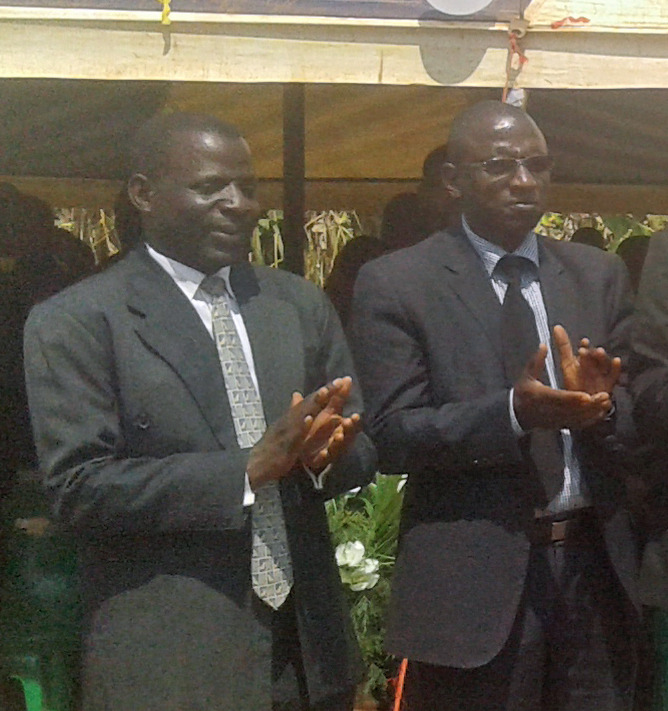Malawi:
New National Alcohol Policy launched by Minster of Health
The new National Alcohol Policy for Malawi has been in the making since 2008, a process originally initiated by a group of NGOs. On the 18th of August almost ten years later the Minister of Health, Atupele Muluzi, could launch the final document at a colourful ceremony in Dedza District.
 “With the National Alcohol Policy now in place, communities will be supported and empowered to use their local knowledge and expertise in adopting effective approaches to prevent and reduce the harmful use of alcohol,” said Muluzi in his speech as Guest of Honour at the launch ceremony.
“With the National Alcohol Policy now in place, communities will be supported and empowered to use their local knowledge and expertise in adopting effective approaches to prevent and reduce the harmful use of alcohol,” said Muluzi in his speech as Guest of Honour at the launch ceremony.
A large crowd was gathered at the Kantchito Primary School Ground, in the area of Traditional Authority Kamenyagwaza in Dedza District, to witness the policy launch and to enjoy the cultural performances that made the launch a very lively and colourful happening.
A long menu of effective interventions
The new policy document recommends a broad selection of interventions that shall contribute to the reduction in alcohol-related ham and other societal problems linked to such use; hiv/aids, gender-based violence, family problems, poverty etc. This includes regulation of availability of alcohol, restrictions on advertising, measures against drink-driving, taxation, education etc. The Malawi policy takes the WHO Global Alcohol Strategy from 2010 as its starting point and builds on the best international research, combined with profund knowledge about local realities in Malawi.
The representative from the Southern African Alcohol Policy Alliance (SAAPA), Phillip Chimponda, applauded the work and the commitment of both the Malawian government and civil society. He commended all partners in the process for the innovative and inclusive methods that were used and made reference to the fact the WHO Afro and FORUT had documented the Malawi process and as best practice in alcohol policy development.
An inclusive process
 Said the SAAPA chair: “The development process of the National Alcohol Policy involved various stakeholders at different levels of the community, such as the traditional leaders, religious groups, political leaders, health professionals, academics, researchers, youth and women groups, government leaders, national policy leaders as well as international bodies like the World Health Organization (WHO), non-governmental organizations as well as economic operators respectively”.
Said the SAAPA chair: “The development process of the National Alcohol Policy involved various stakeholders at different levels of the community, such as the traditional leaders, religious groups, political leaders, health professionals, academics, researchers, youth and women groups, government leaders, national policy leaders as well as international bodies like the World Health Organization (WHO), non-governmental organizations as well as economic operators respectively”.
The Minister of Health admitted that even if Malawi had made attempts to stem the tide of growing alcohol problems, the efforts had not been sufficient as any legal provisions are outdated and not in conformity with international standards.
An NGO initiative
 The initiative to develop the policy was taken in 2008 by the Drug Fight Malawi, a development NGO with a special focus on prevention of problems related to alcohol, drugs and tobacco. The initiative was at that time a protest against an initiative by the alcohol industry to get their hands on the steering wheel in development of national policies in 7-8 African countries.
The initiative to develop the policy was taken in 2008 by the Drug Fight Malawi, a development NGO with a special focus on prevention of problems related to alcohol, drugs and tobacco. The initiative was at that time a protest against an initiative by the alcohol industry to get their hands on the steering wheel in development of national policies in 7-8 African countries.
 A broad alliance of government agencies and civil society organisations was formed and the practical work on the formulation of a policy document was done by a Task Force Committee chaired by the Ministry of Home Affairs and with Drug Fight Malawi as secretariat.The picture to the left shows Nelson Zakeyu (left), Executive Director of Drug Fight Malawi and a key person throughout the policy process, together with the SAAPA chair, Phillip Chimponda.
A broad alliance of government agencies and civil society organisations was formed and the practical work on the formulation of a policy document was done by a Task Force Committee chaired by the Ministry of Home Affairs and with Drug Fight Malawi as secretariat.The picture to the left shows Nelson Zakeyu (left), Executive Director of Drug Fight Malawi and a key person throughout the policy process, together with the SAAPA chair, Phillip Chimponda.
SAAPA chair Phillip Chimponda concluded his speech by pointing to the fact that the largest and most important task has not yet started; implementation of the interventions recommended in the Policy. “Resource mobilization is a very big challenge to implement such policies. Therefore government’s continued collaboration with all identified relevant stakeholders is paramount in achieving the desired outcome. SAAPA therefore calls on your government to continue its political will and commitment to support the implementation of the policy”.
RELATED ARTICLES
- New report highlights benefits of policy measures to prevent harmful alcohol consumption
- African Alcohol Policy Alliances with clear message to the African Union
- Alcohol use - a barrier to health and to the achievement of the SDGs
- Government investments in alcohol industry up against the wall
- Abstracts for GAPC 2020 – deadline 29 July 2019
- A regional African alcohol coordination mechanism is needed
- New book reveals a series of unethical business practices by Heineken in Africa
- Next GAPC to be held in Dublin in March 2020
- SAFER – a new WHO initiative to boost national alcohol policy processes
- Trouble Brewing

